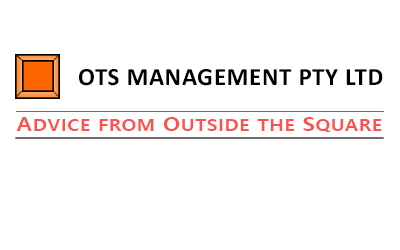If you are a Director in an Indigenous corporation, the start of a new year is as good a time as any to review your Board performance and the stability of the corporation you are leading.
As a Director, you have the responsibility to oversight the performance of management, and the "shape" and direction of the corporation. You also have a legal duty to exercise diligence in your work as a Director, which means understanding where any weaknesses lie and acting upon them.
But, to be short and sweet, at the beginning of the new year, spend some time considering these 5 issues as you survey the health of your corporation.
Not-for-profit Sector
Most Indigenous corporations are registered with the Australian Charities and Not-for-profits Commission (ACNC) as a charity.
Does your corporation comply with the ACNC's Governance Standards?
Specifically, you should be conducting an at least annual review of Governance Standard 1: Not-for-profit and Working Towards a Charitable Purpose.
Being registered as a charity is not a once-off responsibility. You need to demonstrate that you remain a charity. Does the work you do continue to be not-for-profit and is it still working toward the charitable purpose you were set up to do?
Corporate Culture
You will have watched the outcome of the Haynes Royal Commission Into The Misconduct in the Banking, Superannuation, and Financial Services Industry.
The findings challenged the reputation of some of the largest financial institutions in Australia, and the misconduct found largely resulted from the perpetration of a toxic corporate culture that was allowed to develop. In these instances, the corporate culture referred to the way management allowed bad practices to be exercised because it made more profit. As a result, it became "okay" to devise new ways or to allow "small" mistakes to continue to the detriment of the customer.
What is your corporate culture like?
Does it align with your stated vision, mission and values? Or have they been allowed to evolve and change into something you would not have stood for in the past? What is your corporation's attitude to achieving outcomes, transparency, stakeholders?
Corporate and Management Reports
You need to be aware of and review your corporate reporting procedures. Whether you are registered with the ACNC or ORIC, or both, your corporation has reporting compliance that it has to meet. Do you know what they are?
Are you complying with the reporting, lodgement and compliance regime of your corporate regulator, your constitution to your members, and to the Australian Taxation Office? Are your employees' superannuation contributions being paid on time?
As well, you also need to consider your internal management reports and see if they contain everything you need to fulfil your duties and responsibilities as a Director.
Are your financial and management reports accurate and up to date? Do you merely rely on them or does your Board make relevant enquiry of results and balances? Does management report on all operational matters or just highlights? The highlights may be appropriate, as long as you are also aware of any other important issues.
Director Liability
As Directors you have strict duties and responsibilities under the law. You cannot abrogate or delegate these duties. While your role is in governance, not management ("eyes in, fingers out"), whether you are across what your corporation is doing rests on a fine balance in making enough specific enquiries of matters brought to your attention.
For example, if you are told that your corporation is doing something to breach the law and you do nothing or simply ask management to look after the matter - you are potentially breaching your own duties of diligence and duty of care. The question is whether or not a "reasonable;e" Director would make specific inquiries about the breach and how management was going to fix it, and if the Court finds that such a reasonable Director would do so and you did not, you may be liable for penalties and a criminal conviction.
The most important status of your corporation is its solvency.
As a Director, do you know what is the legal definition of insolvency? Are you aware of whether your corporation is solvent or not? As a Director, you have a legal duty not to trade while insolvent and if found to have done so, you may become personally liable for the debts of the corporation.
Cybersecurity, Privacy and Data Management
You would be hard-pressed to find a corporation that did not keep at least some of its information electronically on a computer. Some of this information, specifically those relating to individuals like your employees, is subject to the Privacy Act and must be managed in a specific way. Are you aware of what this is and do you comply?
This question goes even further, especially as most systems are now connected to the internet. Is your corporation using reasonable security systems and secure password systems to protect your data?
Loss of data may not only be breaching relevant privacy and security legislation, but it may also represent a significant risk with a significant financial effect.
Summary
It's the start of a new year.
Make sure that you start your year by being confident that you are doing the right thing as a Director of your Indigenous corporation and reviewing some critical issues for the corporation.
If you want to read more about governance and Directors' duties, we have many articles and white papers on our website at https://otsmanagement.com.au which you can get for free.
If you have any enquiries, you can email me at


